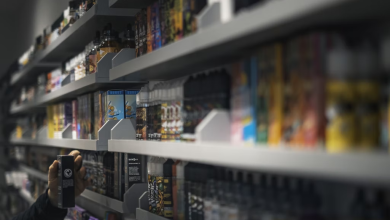How to Defeat Students’ Psychological Problems
Let’s face reality: sometimes, very often, in reality, an inadequate study method is just one piece of the puzzle, just one of the answers to the question “why am I stuck with school or university and can’t get good results? “
Yes, because if there is no question that knowing how to study well, effectively, and efficiently, is a necessary condition to be successful as a student, it is certainly not a sufficient condition.
The other major sensitive area is that of psychology and, specifically, the psychological difficulties of students.
Blockages, anxiety, fear, oppression, sense of duty, stress, exhaustion, and rejection are symptoms that too many, too many, too many students are familiar with.
Taking care of the study technique, of the machine, to use a metaphor, is necessary. Taking care of the person, the pilot is even more so.
A few years ago I came across a book different from all the others I had read up to that moment, capable of shedding light on the mechanisms that lead students to get stuck and that book seemed to me to speak to me and my difficulties. It seemed to me that he really understood me and could help me.
A book that I have already recommended, but to which I had never dedicated a specific article.
It is ” The strategic student “, by Alessandro Bartoletti.
Contents
And that’s what he does in “The Strategic Student”. He first outlines a series of typical problems of the student world, starting from school to getting to university.
He classifies them, gives them a name like “chained student”, “terrified student”, “perfectionist student”, and “allegedly incapable”, describes them with painful precision and anyone, like me, who has unfortunately suffered from it, cannot help but recognize yourself in them and understand something more about yourself and your mind.
But Alessandro does not stop at this, which would already be a lot, no, he also goes down to investigate the role of all the “actors” who contribute to the problematic situation: students, of course, but also teachers and parents and then, when he has finished with description, the ” study as a problem “, as the first part of the book defines, and it immediately moves on to the second part, ” the study as a solution “, where it offers a series of very useful and practical strategies and principles to solve these difficulties, taken from the paradigm of brief strategic psychotherapy.
What Is Short Strategic Psychotherapy?
And here we are: what is this Brief Strategic Psychotherapy? I quote directly from Alessandro’s site, so I can’t be wrong:
“Brief Strategic Therapy is an original approach to the solution of human problems that presents specific theoretical foundations and operational practices in constant evolution on the basis of empirical experience. It is a short approach (under 20 sessions) that deals on the one hand with eliminating the symptoms and behaviors that are the source of suffering, on the other hand with producing a change in the ways in which a person builds his own personal reality and interpersonal “.
It is an approach that comes from afar, from Milton Erickson, from Gregory Bateson, from Paul Watzlawick, from the school of Palo Alto, and here, in Italy, from Giorgio Nardone, a real leader, and which is spreading because it leads to incontrovertible results…
The fundamental difference with normal psychotherapy is the focus not so much on “why” there is a problem and from which origins it comes, but rather on “how” it really works and how to overcome it in an efficient and… strategic way.
Still quoting the Alessandro Bartoletti website:
“… to change a problematic situation, it is not necessary to investigate and reveal the past causes (an aspect on which, however, there would be no possibility of intervention), but it is more useful to work on how the problem works in the present and on what strategies are more suitable for creating an effective and lasting change “.
It seems to make sense, what do you think?
Stories
As if what I have told you so far were not enough, Bartoletti adds to the final part of the book a series of interesting and intriguing stories directly from his clinical experience, which helps to see the strategic therapeutic process and its effectiveness in practice. Not just theories, words, science, but people. Real people, with their problems and the strategies that allowed them to solve them.
Writing
Bartoletti’s writing is what writing should always be: it does not get lost in frills, it goes straight to the point, it puts clarity and completeness of the content above any other quirk, and, even when some more refined and sought-after term is allowed., it remains glued to the reader in order to make him really learn something.
It just works.
This book, without going around so much, is an inevitable tool for any student, parent, or teacher, I no longer know how many times I have recommended it to the hundreds and hundreds of students in difficulty who write to me…
… and let me tell you something personal, from one who knows the weight of psychological difficulties well, that the student’s block has taken him in the face, from one who did not want to do psychotherapy but then allowed himself to be persuaded and has since having seen his life transformed: mental health is a serious matter, taking care of yourself, of the way you think, react, behave, should be a priority for everyone. Especially for those who, like students, live in situations of great stress, and complexity, which put a strain on our stability.
Remember One Thing
It’s time to stop with stereotypes, with shame, with the fear of “shrinks”, with the machismo of “I don’t need anyone, I can manage alone.”
No. Just like when you need help with your research paper, you can turn to a research paper writer without fear.
Some more, some less, we have all had and need a hand. And the first step is to become aware of it.
Obviously, this book cannot replace a real path of psychotherapy, it cannot magically resolve every psychological difficulty of every student.
It can’t be the end point of that process I was talking about taking care of your mental health.
But it can certainly be the beginning.
Buy it, read it, reread it, and even talk about it around. It is worth it.















